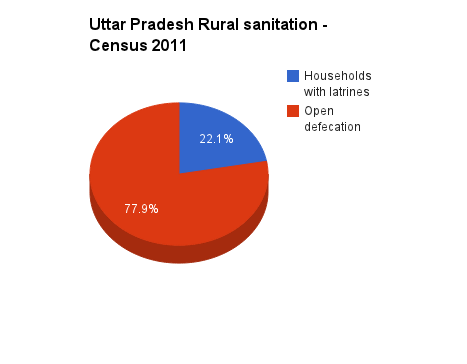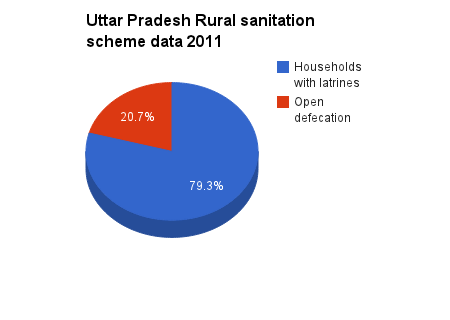Prabha, 23 years old lives in Mankapur village in Uttar Pradesh. She recently delivered a baby boy at home. Prabha has never used a toilet in her life. Every day of her pregnancy, she woke up before dawn, carried a mug of water and went 1.2 km away in the fields to defecate. The only care that was provided to Prabha was a teenager girl sent with her to the fields (miles away from the house) at the time of pre-dawn. She continues to do this after she has had her baby also.
Prabha narrates various stories of being afraid while stepping out in the open fields at night and petrified that she would get bitten by dogs running around or snakes in the field.
This problem is not restricted to Prabha. It affects several young women in our villages with far reaching consequences such as:
- Unhygenic conditions that increase likelihood of disease like dysentery, diarrhea, anaemia and hepatitis, according to World Water Day Re
- Lack of privacy
- Proneness to snake and insect bites
- Creation of infection route to child
I read an article in Times of India where they had described the situation of Gonda District in Uttar Pradesh. Here, people were using ‘shame’ as a weapon against the custom of open defecation in Bahraich. Some gangs there create a stigma against the act, so that people, particularly residing in the rural areas use toilets. We can simulate this in other parts of the country as well.
Also, one can even think of the same campaign that was initiated by Haryana state sending a message that if a man doesn’t has a toilet, he has no eligibility to get married. “No toilet, No Bride”!
“Progress on Sanitation and Water Update 2013”, latest UNICEF Report released on May 13, 2013 states “Half of the population in India still defecates in the open whereas neighboring countries like Nepal, Bangladesh and Pakistan have made significant progress by reducing their open defecation rates. Some of them have even reduced it by 25% after 1990” (Courtesy: Zee News).According to ‘The Economic Times’, 64% of the total open defecation in the world takes place in India.
What is the Government of India doing? It has designed Nirmal Bharat Abhiyan (originally known as Total Sanitation Campaign), a rural sanitation scheme, which aims to achieve safe, rural sanitation. The goal is to make villages open defecation free by 2022. Through this scheme the Government also awards villages which come out as Nirmal Gram (i.e, when they achieve complete sanitation requirements).
Even when the government is making numerous attempts to solve the issues related to sanitation, it’s yet not an efficient way to move forward. Even when the scheme looks to be in perfect place, delivery of the scheme and last mile implementation continues to pose big problem requiring immediate solutions.


The visualization of the data from both the sources is completely a mirror image of each other and this clear demonstration of data gaps opens up questions on how data is collected and what the real situation on the ground is.
It is important to remember that the problem of poor data goes beyond numbers on paper to thousands of women like Prabha who do not get access to safe sanitation facilities effectively.